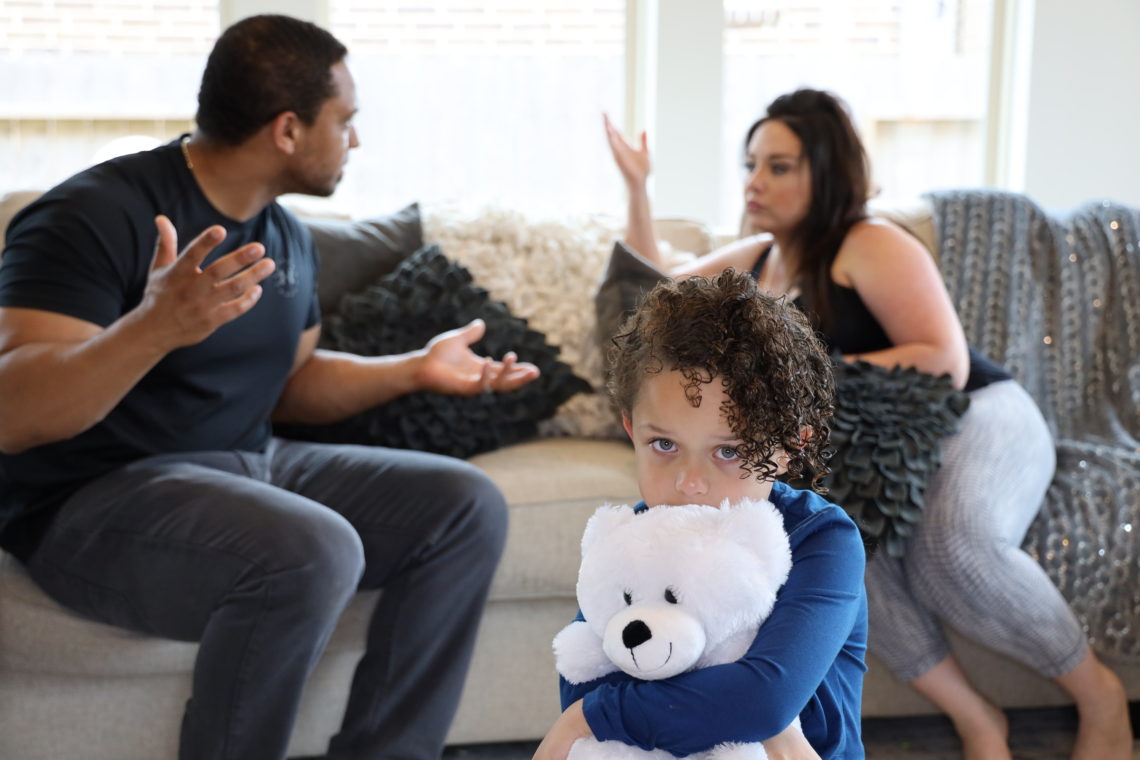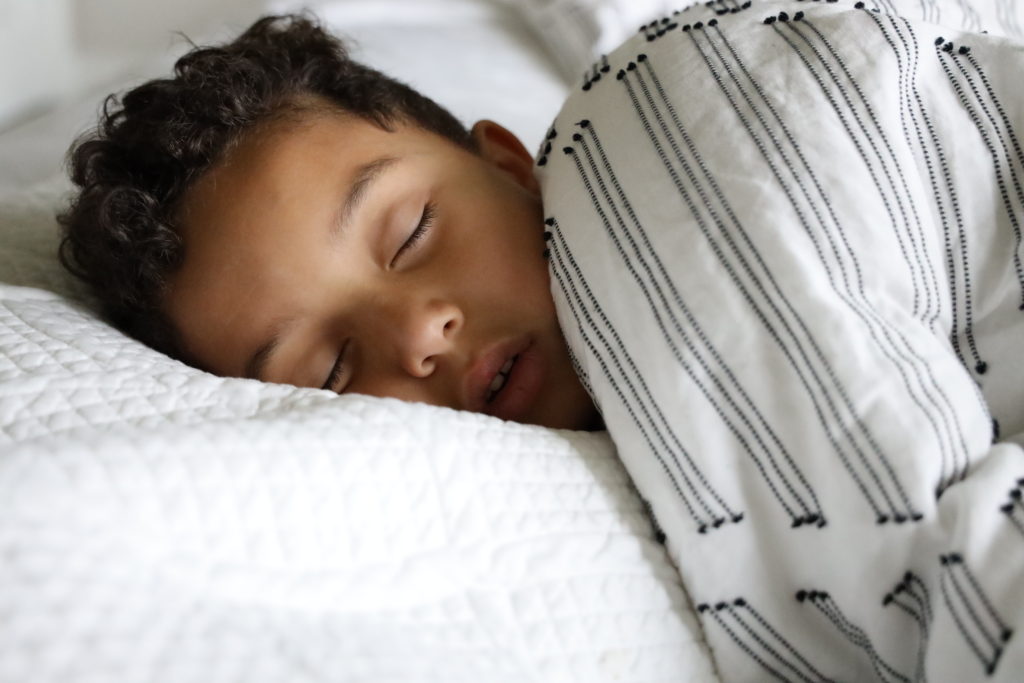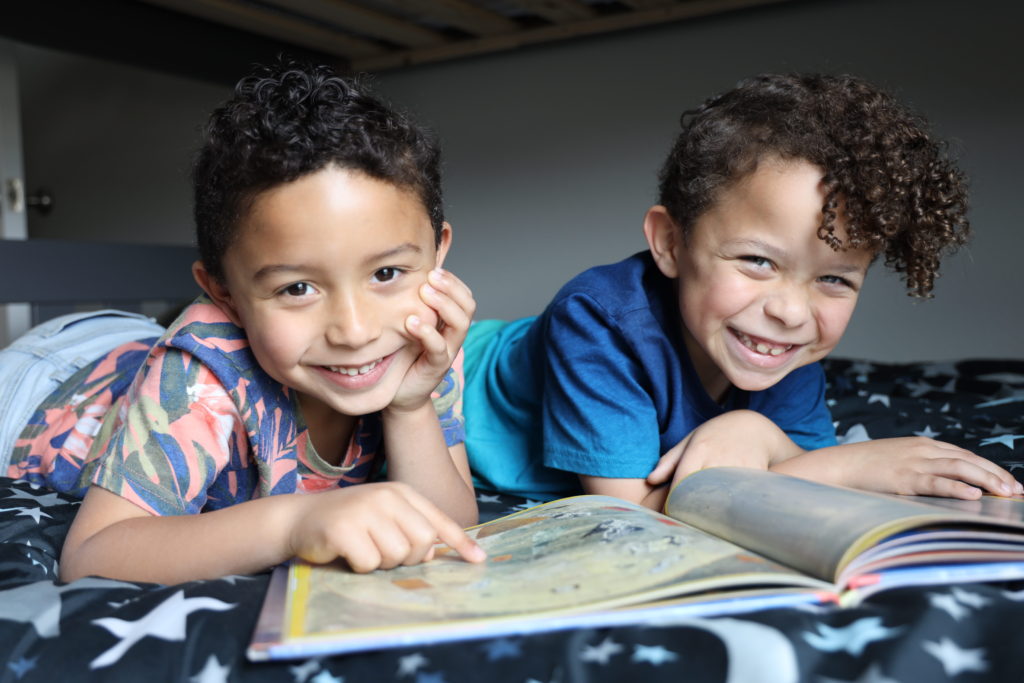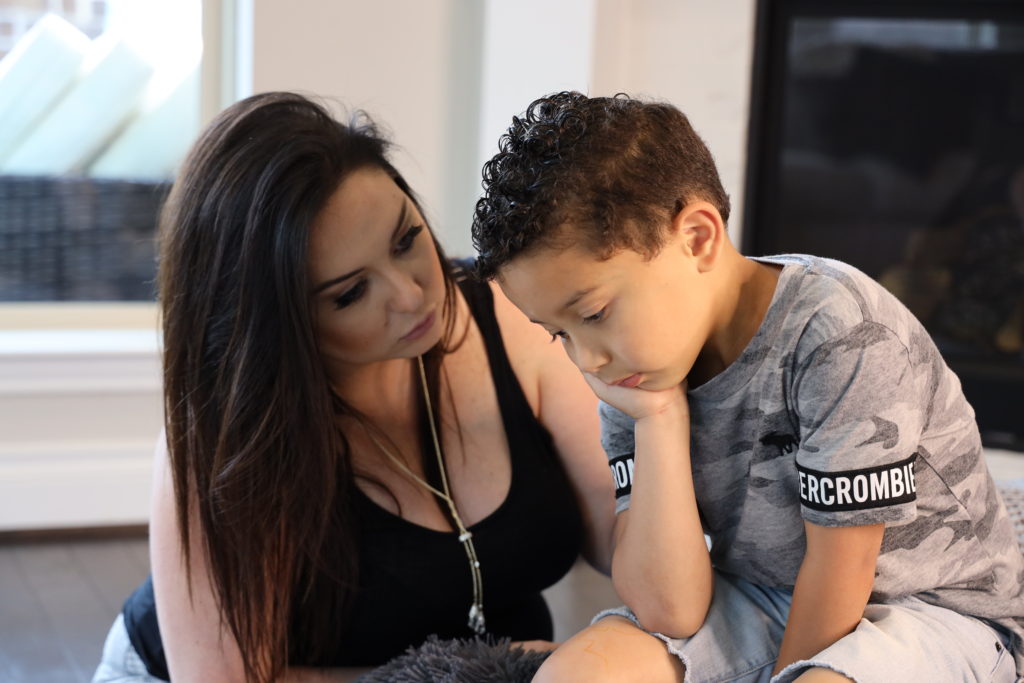
How To Lower Stress in Children in 10 Steps
How Stressed is Your Child?
Have you ever taken a moment to consider that your child may be stressed out? Most parents want to give their children every opportunity to explore who they are. Keeping them engaged and active is essential, but swimming, music, karate, football, basketball, church, literacy night and homework; where does it end? When does your child get time to just be a kid? Sure, they may appear to love it, but you have to consider if it’s stressing THEM out.
Balancing extra curricular activities is essential.
As the parent you have to limit the number of extracurricular activities that they are enrolled in. Encourage them to try different classes and activities in different seasons. Letting your child try new things is a great way to explore his interests. Let your children take basketball or piano one year, and ballet or gymnastics the next. Keep in mind that if your child voices that they no longer enjoy a particular activity validate their needs by making some adjustments.
Children don’t always have the ability to describe their stress.
Children experience stress just as adults do, however they don’t always reach out for help. Instead they react in ways that are alarming and confusing for parents. It’s time for all parents to be able to recognize stress cues and take action steps to investigate the source. We can’t always control what happens at school, so having a low stress household is essential in managing emotions. Grown up stress rubs off on children, it is literally contagious. Try to make your home more peaceful, where you can spend quality time together.
How can you help your child?
As a parent who studied child psychology and a teacher who has had to make some hard phone calls; I wanted to compile a guide that literally any parent can use to recognize stress cues. Beyond recognizing the presence of stress in your children, it is important to be familiar with how you can help them to overcome stressful situations. Please remember, I am not a licensed counselor or psychologist, so if you are concerned that your child is in danger please consult your pediatrician. Your child’s mental health is as important as their physical.
How to Recognize Stress: Behavior Cues
It’s not always easy to recognize that your child may be stressed. We have to remember even the most mature child doesn’t always have the language to express their feelings. Here are some behavior cues to recognize if your child may be stressed.
- Bedwetting
- Nightmares
- Regression
- Separation Anxiety
- Lying
- Regression
- Separation Anxiety
- Defying Authority
- Bullying
- Avoidance
- Loss of Appetite
- Fatigue
- Weight Gain/Loss
- Stomach Problems
- Headaches
- Change in Academic Performance
- Loss of Desire to do Activities they Normally Enjoy

Step 1: Make Sleep a Non Negotiable
Sleep is essential to overall health, we know this! Children ages five to nine are recommended to get 10-12 hours a day while children who are twelve and older need 8-10. Bedtime for younger children should be between 7:30 and 9:00pm, and older children should be in bed no later than 9:00-10:00 pm. This is dependent upon when they are required to get up the next morning. Bedtime can be a stressful if it is rushed. Begin a bedtime routine an hour before its actually bedtime. Taking a shower, putting on comfy jammies, reading a book and having some quality time with Mom and Dad before bed can make all the difference. Once you begin your bedtime routine electronics need to be turned off and out of sight. This is incredibly important for our minds to unwind to be ready for sleep. If this becomes a problem, (teenagers) have an electronic hub outside of their bedrooms, and before they say “But I need an alarm”, Walmart has five dollar alarms. Surprise, they still work!
Step 2: Make Nutrition a Priority
Learning to eat for our health instead of our cravings isn’t something we are born knowing. As a parent you must teach your child healthy eating habits. Be very clear that feeding our body healthy foods keeps us healthy from the inside out. (Our brain included.) Feeding your children foods like oranges, oatmeal, nuts, avocados and berries can drastically lower stress levels. Did you know dark chocolate can lower your blood pressure and promote a feeling of calmness? The next time your child has an overwhelming day give them a treat that is good for them! While on the other hand refined carbs like pretzels, chips, and pop-tarts can actual increase anxiety. Foods that are high in refined sugars increase stress hormones including cortisol, the opposite of what we want for our children. When coaching your child in healthy eating habits please remember we eat healthy for our overall health, not our outward appearances. Children should not be focused on dieting or self image!
Step 3: Engage in Physical Fitness
Instill the importance of physical activity with your children. Moving our bodies lowers cortisol and adrenalin hormones while promoting the increase of endorphins which act as a natural mood stabilizer. You don’t have to be an athlete to move your body. Playing catch, going on a walk or stretching are perfect ways to lower stress. Being active promotes better and deeper sleep. Something that can be affected if you are stressed out. Keep in mind if your child is already exhausted from a grueling basketball practice you don’t need to add more exercise to his plate. Finding ways to be active as a family will also promotes conversation, which is important in identifying stressors like bullying and low self esteem.

Step 4: Schedule Relaxing Activities
You know how it goes, if it doesn’t make it on the calendar, it’s hard to make time for it. Open that Calendar App and schedule some coloring time or reading. Anything that is peaceful and calm will quickly become an anticipated event your child looks forward to. Set the scene, go into your music app and download some mediation sound tracks. Any activity coupled with the lights being turned down and calming music immediately relaxes me. Speak with your child about what things bring them peace, when do they feel a since of serenity? Maybe they prefer to get some fresh air by taking a walk, or maybe sitting on the porch watching people pass by. Whatever it might be, make it a priority.
Step 5: Make time for your child
Put your phone down, have conversations, play with your children! It is vastly important that you give each of your children regular undivided and focused attention. Children need to know they both loved and accepted. “The way we speak to our children will become their inner voice”- Peggy O’Mara. But how do you get an avoidant child to talk? Look up some conversation starters, play video games with them, become active in what ever they are interested in. The more focused attention you give your children the more likely they will come to you in times of need.

Step 6: Manage Your Own Stress
Keep in mind that adult conversations need to be kept in private. Children overhearing their parents argue about finances or worrying about a family members cancer treatment can and will be overwhelming. It is not uncommon for parents to disagree, and showing your children how to defuse a disagreement before it turns into an argument is a valuable lesson. A good rule to follow is that if you wouldn’t have the same argument in front of your Grandma don’t have it in front of your children.
Step 7: Don’t Over Schedule
If your child is over extended in their responsibilities this will unavoidably increase stress levels. It can look different for each child. You can have a child barley passing their core classes while some children can handle all the honors courses, volunteer work they can still be in a stressed out state. Extra sports activities need to be limited. Take notice if these activities that your child once loved have now become a source of stress. Helping your children push through uncomfortable situations is a valuable lesson which should be taught over time. Your child should not be enduring years of that lesson.
Step 8: Teach Stress Coping Techniques
It’s never too early to begin teaching children physical relaxation exercises. Breathing techniques, yoga and meditation are great for stress management. Try to help your children with understanding and taking notice to their own stress triggers and cues, in order to identify which relaxation methods work best for them. As adults we are not exempt from stress so modeling coping techniques in front of our children encourages them to use them when alone.
Step 9: Teach your Children to Love Themself
Can you imagine a world where everyone is secure in themselves and bullying wasn’t a thing? Utopia right? Unfortunately, that’s is not the way things are. The greatest lesson we can teach our children is to love themselves. As a parent you need to equip your children with an inner voice of self acceptance. Using personal affirmations can encourage children to combat bullying and negativity. If bullying has become an issue at school, stop it in its tracks. Bullying isn’t something that should be tolerated or ignored. Take action with your child’s principal and don’t let up until the problem is resolved. Social Media is the newest tool for bully’s and let’s be honest teens can be ruthless. If you are going to allow social media in your teens life you must be engaged in it. There are many apps and settings on their phones that promote privacy and protection. Limit time spent on their electronics and follow social media guidelines by adhering to age limits. It’s ok for your children to have limits on social media, you set the rules not them. Make it known that everything they put on the internet is there forever. A stupid tweet at 13 could affect their acceptance to their dream college at 18.

Step 10: Demonstrate Forgiveness
Have you ever flipped out over spilled milk? A broken curfew? Our children are humans! They will make mistakes just as we do everyday, teach them that mistakes are part of learning. Imagine at work you spill your coffee and you are scolded by your boss! Its unimaginable isn’t it? If your six year old spills his milk, stay calm and say “Oops mistakes happen, do you mind getting a towel to help clean this up?”. We need to show them how to recover after an incident, apologize if necessary and move on. It is incredibly important when your children become teenagers that they trust you in a time of need. Their mistakes at 16 are much more dangerous than at 6. When they come to you validate them and help to create a plan to deal with the mistake. They need to know that you will have their back.
-Sierra Dawne
P.S.
Above are Amazon affiliate links to great resources to guide your home into a low stress environment.




2 Comments
Sam
Love it!!
Terry
I love that you finally did this! I am excited to see where this new adventure leads!